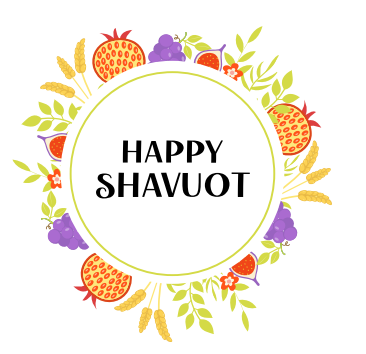Parashat Yitro is the 17th weekly Torah portion in the annual Jewish cycle of Torah reading. Yitro was Moshe’s father-in-law, and he played a crucial role in the parashah. In the parashah, Yitro visits Moshe and sees that he is overwhelmed with judicial responsibilities over all of B’nei Yisrael. Yitro offers wise counsel, advising Moshe to appoint a system of judges and officials to share the burden of governance. Additionally, in the parashah, B’nei Yisrael gathers around Mount Sinai and receives God’s commandments through Moshe. These commandments form the foundation of ethical and moral principles in Jewish tradition.
We interviewed Reb Boyd, Dr. Ringel, and Mr. Yativ, asking them the following three questions: how does Parashat Yitro relate to you on a personal level? What does “Na’aseh V’nishma” mean to you? In what ways can the values and lessons from Yitro’s advice to Moshe be applied in the modern classroom or school environment? Read ahead as we delve into what our teachers have to say about Parashat Yitro.
Parashat Yitro on a Personal Level
Parashat Yitro was found to hold a distinct, personal significance to each teacher interviewed. Mr. Yativ explained that he, “Read it as the parashah for his Bar Mitzvah in his synagogue during Shabbat.” Mr. Yativ’s parashah still connects to him on a deep, spiritual level ever since he was a teenage boy. Reb Boyd said, “In general, the word Torah comes from ‘hora’ah’ which means lesson. Every single Jew can relate to what’s happening in the parashah because it’s a lesson for everyday life. In addition, Rabbi Schneur Zalman of Liadi, tells us that every Jew must live with the times, and that means the parashah.” Reb Boyd’s answer emphasizes the belief that every Jew can find daily relevance within the weekly Torah portion. Dr. Ringel responded that there is a “Two-way communication between people, and God highlighted in this parashah.” In simpler terms, Yitro becomes more than a historical account – it’s a guide for personal growth, ethical living, and a source of spiritual connection for those who engage with its teachings.
Personal Reflections on “Na’aseh V’nishma”
The phrase “Naaseh V’nishma” can mean many different things to different people. Mr. Yativ shared, “To me, it means the total acceptance of the Ten Commandments. The Israelites said, ‘We will do it and we will hear’ before they even knew what was in it.” This is similar to agreeing to something before fully understanding it. It’s about having faith in and making a commitment to follow the laws of Hashem, even when we don’t fully understand them at first. Reb Boyd said, “It means that we do what Hashem wants us to do without consideration for what is logical or correct in human understanding, but with a grasp that God decides to make rules. It’s also a tremendous sign of trust that the Jewish people will tell God that we will do whatever He wants, so it shows our depth of relationship with him.” Dr. Ringel detailed how, “Sometimes, in life, you need to jump into your commitment because you care, even if you don’t fully know what you’re getting into.” These perspectives exhibit the idea of being directed by faith and acceptance, belief, and dedication – even in situations where the answers are not entirely clear.
Applications of the Lessons of Parashat Yitro
Parashat Yitro goes beyond the synagogue. It teaches practical lessons that may be applied to everyday life – particularly in school environments. When asked about incorporating Yitro’s wisdom into classes, Mr. Yativ underlined the need to apply these teachings to students’ everyday lives. He emphasized that “Just as the Jewish people in Parashat Yitro were required to follow Hashem’s commandments with consequences for disobedience, students must also follow rules established by their teachers.” In making this connection, Mr. Yativ stressed the value of creating a respectful relationship between students and teachers, similar to that shared between the Jewish people and Hashem in the parashah.
Reb Boyd provided a comprehensive perspective on the connection between the school environment and the parashah. He related the crucial role of communication among students, counselors, teachers, principals, and the school administration, noting that, “Students can talk to counselors and teachers who then pass information to principals, facilitating communication with the school administration.” Reb Boyd’s viewpoint focuses on the collective effort needed for emotional and academic support to ensure that no Jewish child is left behind. Dr. Ringel offered a more generalized insight, stating that, “People should not be afraid to delegate authority when necessary.” He believes that trust, collaboration, and communication with higher authorities are the keys to effective leadership. The overall teachings of Parashat Yitro show how Torah lessons extend beyond the synagogue and into the practical aspects of our schools and classrooms.
Many valuable life lessons can be learned from Parashat Yitro. ‘Na’aseh V’nishma’, doing things even though we don’t fully comprehend them at first, is a sign of agreement. Communication, a trait recognized as invaluable by both Yitro and Reb Boyd, is a sign of connection. These lessons can help us make more informed decisions and actions in our daily lives. By accepting these realizations, we can put Parashat Yitro’s wisdom to use in our everyday lives, and greatly promote peace and prosperity in our world.




